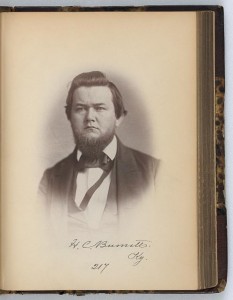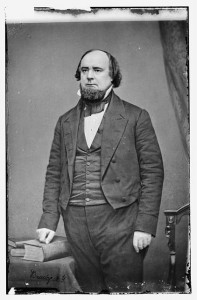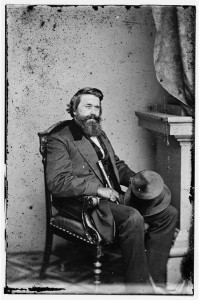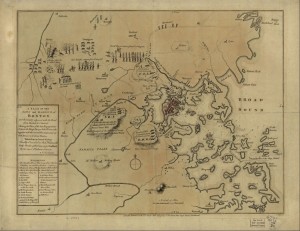Burnett’s proposal for irregular warfare applauded by soldiers watching senate proceedings
From the Richmond Daily Dispatch April 21, 1862:
Applause in the galleries.
Mr. Burnett again spoke in favor of irregular warfare, and contrasted its advantage in a striking manner with the more regular tactics of West Point. His remarks were of such a character as to elicit a thunder of applause from some soldiers in the gallery.
The President pro blem [tem] (Mr. Ore [Orr]) desired the gentleman to cease, and instantly ordered the disorderly persons in the gallery to be removed by the Sergeant-at-Arms.
Mr. Wigfall, of Texas.–I hope, Mr. President, we will do more than turn them out. Applause in the galleries of the Senate is something that might be expected from the mob at Washington, but which I did not think could occur in this country, and it should be punished on the first offence.
Mr. Clark, of Mo.–Oh no, do not be harsh with it. It was merely admiration of excellent sentiments expressed out of time and place, and perhaps inexpressible.
Mr. Yancey himself approved the sentiment, and urged the gentleman from Texas to make some little allowances for liberty.
Mr. Wigfall–Yes; but if you permit applause you will afterwards have to endure hisses, and moreover I want it distinctly understood that this is no public arena.
Several gentlemen interjected remarks in behalf of forgiveness for this, the first offence, and finally Mr. Wigfall acquiesced, contenting himself with having brought the matter to the notice of the Senate. Section second of the bill was stricken out, and the act was passed.
The Senate soon after took a recess till 7[1/2] o’clock P. M. The evening session was with closed doors.
At the beginning of the war Wigfall was a close friend of Confederate President Jefferson Davis. Like political alliances throughout his career, he would first support then split with Davis as the war progressed. Davis supported an increasingly strong national government, while Wigfall, forever an advocate of states rights, moved to block the creation of the Confederate Supreme Court, fearing Davis’ appointments would rule against the states. Wigfall also challenged Davis, a West Point graduate and former United States Secretary of War, on many of his military-related policies, ridiculously citing his own military experience in the Seminole Wars. Wigfall was a close friend of Confederate General Joseph E. Johnston and frequently proposed legislation on the general’s behalf. He was also an early proponent of making Robert E. Lee commander of all Confederate armies
was one of the three commissioners sent to Washington, D.C. to negotiate the transfer of federal property to the State of South Carolina; the failure of these negotiations led directly to the bombardment of one of the highest-profile federal assets within South Carolina, Fort Sumter.
It is said that Henry Cornelius Burnett’s proposal occurred on April 19th:
In an April 19, 1862 address to the legislature, Burnett denounced Davis’ preference for those who were, like Davis himself, graduates of West Point. The speech drew such a vigorous positive response from the gallery that some of the most zealous had to be removed.
The date seems appropriate because 87 years earlier to the day irregular tactics (like setting up ambushes while hiding behind trees) helped some other rebels harass the bright red targets in the British army as it was returning to Boston from Concord.




